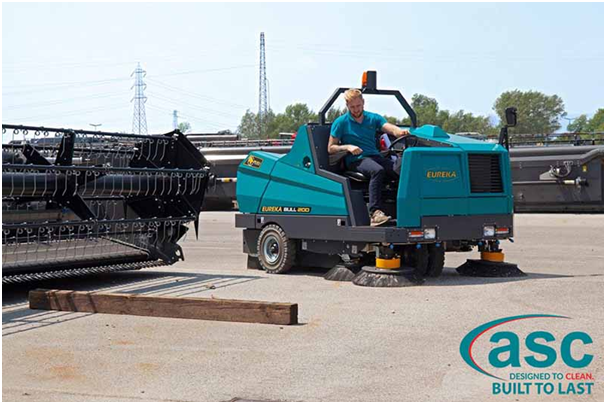Industrial electrician services play a crucial role in today's modern world, where industries and manufacturing facilities heavily rely on electricity to power their operations. These skilled professionals are responsible for installing, maintaining, and repairing electrical systems in industrial settings, ensuring the continuous flow of electricity to keep machinery and equipment running smoothly. In this comprehensive guide, we will explore the vital role of industrial electrician services, their responsibilities, and the importance of their work in various industries.
The Role of Industrial Electricians
Industrial electricians are highly trained professionals who specialize in working with electrical systems in industrial environments. Their primary responsibilities include:
Electrical System Installation:
Industrial electricians are responsible for the installation of electrical systems in new industrial facilities. This includes wiring, circuitry, control panels, and ensuring that all components are compliant with safety regulations and local codes.
Maintenance and Repairs:
Regular maintenance is essential to prevent electrical system failures. Industrial electricians perform routine inspections, identify potential issues, and repair or replace faulty components to ensure the system's reliability.
Troubleshooting:
When electrical problems arise, industrial electricians are called upon to diagnose and troubleshoot issues efficiently. They use their expertise to identify the root causes of problems and implement effective solutions.
Upgrades and Improvements:
As technology advances and industrial processes evolve, industrial electricians are often tasked with upgrading existing electrical systems to meet modern standards and improve efficiency.
Safety Compliance:
Ensuring electrical safety is a top priority in industrial settings. Industrial electricians are responsible for implementing safety measures, such as proper grounding, circuit protection, and electrical equipment maintenance, to minimize the risk of accidents and injuries.
Industries Served by Industrial Electricians
Industrial electricians provide their services across a wide range of industries, each with its unique electrical needs and challenges. Some of the key industries that heavily rely on industrial electrician services include:
Manufacturing:
Manufacturing facilities require a constant and reliable power supply to operate machinery and production lines efficiently. Industrial electricians play a vital role in ensuring that electrical systems in these environments are well-maintained and up to code.
Oil and Gas:
The oil and gas industry relies on complex electrical systems to power drilling equipment, refining processes, and distribution networks. Industrial electricians in this sector must be well-versed in hazardous area classifications and explosion-proof electrical installations.
Mining:
Mining operations depend on electrical systems to power heavy machinery, lighting, and ventilation in challenging underground environments. Industrial electricians in mining must be skilled in both surface and underground electrical installations.
Automotive:
Automotive manufacturing plants use sophisticated robotics and automation systems that require precise electrical control. Industrial electricians in this industry are responsible for maintaining and optimizing these systems to maximize efficiency.
Food Processing:
Food processing facilities rely on electrical systems to run conveyor belts, ovens, refrigeration units, and more. Industrial electricians ensure that these systems meet strict sanitation and safety standards.
Pharmaceuticals:
Pharmaceutical manufacturing facilities have stringent requirements for electrical systems to maintain a controlled environment and ensure product quality. Industrial electricians in this sector play a critical role in adhering to these standards.
Aerospace:
Aerospace facilities require highly reliable electrical systems for testing and manufacturing aircraft components. Industrial electricians in this industry must have a deep understanding of complex electrical systems and their integration with aerospace equipment.
Chemicals:
Chemical processing plants use electrical systems to control various chemical reactions and production processes. Industrial electricians are responsible for ensuring the safety and efficiency of these systems.
Key Responsibilities of Industrial Electricians
Industrial electricians have a wide range of responsibilities that encompass the installation, maintenance, and repair of electrical systems in industrial settings. Some of their key duties include:
Blueprint Interpretation:
Industrial electricians must be able to read and interpret electrical blueprints and schematics to understand the layout of electrical systems and components.
Wiring and Conduit Installation:
They install wiring, conduit, and electrical components, ensuring that they are properly connected and meet code requirements.
Panel and Control System Installation:
Industrial electricians set up control panels, distribution boards, and automation systems, configuring them to operate machinery and equipment efficiently.
Electrical Testing:
They use specialized equipment to test electrical circuits, voltage, and current to verify that systems are operating within specified parameters.
Troubleshooting:
When electrical issues arise, industrial electricians identify and resolve problems, such as short circuits, power fluctuations, and equipment malfunctions.
Equipment Maintenance:
They perform routine maintenance on electrical equipment and machinery to prevent breakdowns and extend their lifespan.
Safety Compliance:
Industrial electricians are responsible for ensuring that all electrical installations and systems comply with safety regulations and industry standards.
Upgrades and Retrofitting:
They upgrade and retrofit existing electrical systems to improve efficiency, energy conservation, and safety.
The Importance of Industrial Electrician Services
Industrial electrician services are essential for several reasons, including:
l Minimizing Downtime: In industrial settings, even a brief interruption in power can result in significant financial losses. Industrial electricians ensure that electrical systems operate smoothly, reducing downtime caused by electrical failures.
l Safety: Electrical systems in industrial environments can be hazardous if not properly maintained. Industrial electricians play a critical role in implementing safety measures to protect both workers and assets.
l Efficiency: Well-maintained electrical systems operate more efficiently, leading to cost savings and reduced energy consumption.
l Compliance: Industrial electricians ensure that electrical systems meet regulatory and industry standards, reducing the risk of legal and financial penalties.
l Reliability: Reliable electrical systems are essential for consistent production and product quality in industrial processes.
Challenges Faced by Industrial Electricians
Working as an industrial electrician can be challenging due to various factors, including:
l Hazardous Environments: Many industrial settings pose unique hazards, such as exposure to chemicals, extreme temperatures, and confined spaces. Industrial electricians must be trained to work safely in these conditions.
l Complex Systems: Industrial facilities often have complex electrical systems with multiple components and interconnected machinery. Troubleshooting and repairing these systems require advanced knowledge and skills.
l Regulatory Compliance: Industrial electricians must stay up-to-date with constantly evolving electrical codes and safety regulations to ensure that their work remains compliant.
l Emergency Response: Electrical emergencies can occur at any time, requiring industrial electricians to be available for immediate response and repairs.
Training and Certification of industrial electricians
Becoming an industrial electrician requires formal training and certification. The typical path includes:
l Education: Many industrial electricians begin their careers by completing a formal apprenticeship program, which combines classroom instruction with on-the-job training. These programs typically last four to five years.
l Licensing: Some regions require industrial electricians to obtain a journeyman or master electrician license, which often involves passing a licensing exam.
l Continuing Education: To stay current with industry trends and regulations, industrial electricians often pursue ongoing education and training.
l Specialized Training: Depending on the industries they work in, industrial electricians may need additional specialized training, such as working with hazardous materials or explosion-proof electrical systems.
Conclusion
Industrial electrician services are indispensable for maintaining the electrical infrastructure that powers industrial processes across various sectors. These skilled professionals ensure the reliability, safety, and efficiency of electrical systems, playing a vital role in the functioning of modern industries. As technology continues to advance, the role of industrial electricians will evolve, requiring them to adapt to new challenges

 Catherine Sewell
Catherine Sewell



